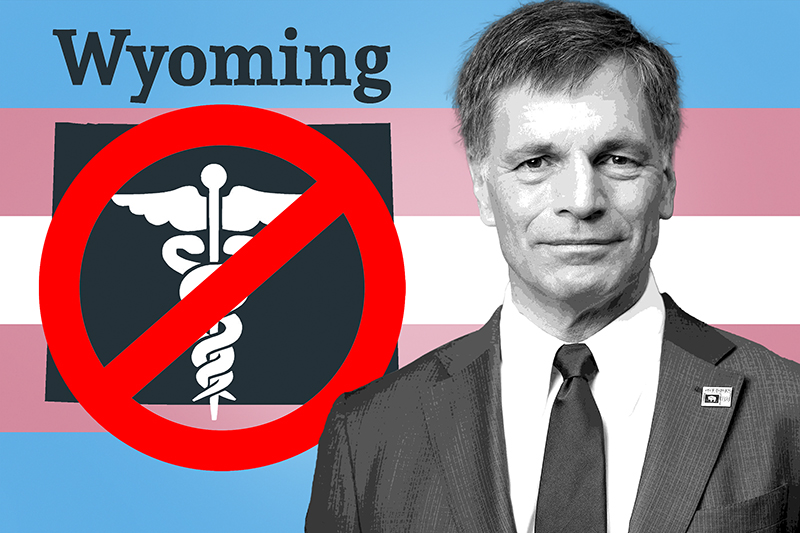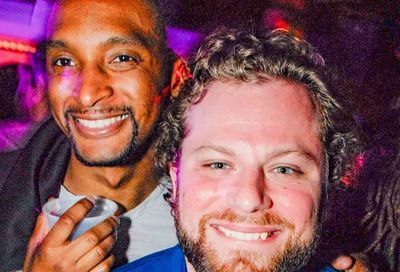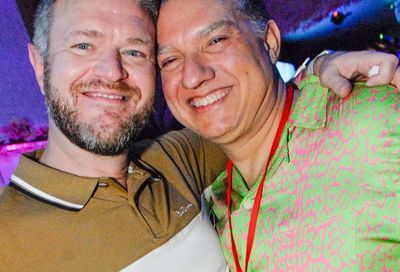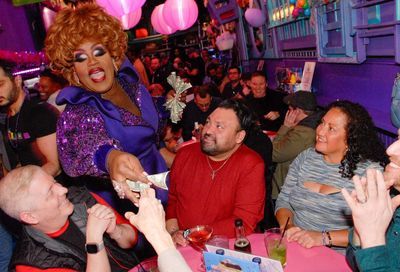D.C. Council passes health care cultural competency bill
Measure would require providers to receive training about LGBT-related health issues

The D.C. Council on Tuesday approved a first-of-its-kind bill that would require all licenses, certified and registered health care professionals to undergo cultural competency training on health challenges that specifically affect members of the LGBT community.
The bill, which passed unanimously, would require health care professionals to receive two credits of instruction on treating and establishing clinical relationships patients who are LGBT, gender nonconforming, or questioning. The instruction must also provide information on specific health risks facing LGBT people, and best practices for dealing with sensitive or confidential information, providing necessary support and resources to LGBT patients, and overcoming cultural biases that could otherwise adversely affect the quality of care that they receive. The bill will now go before Mayor Muriel Bowser (D) for her signature into law, after which it must survive a 30-day congressional review period.
A coalition of LGBT advocates and culturally competent health care providers lobbied and testified on the bill’s behalf, in part due to various studies outlining the disparities, particularly those faced by low-income LGBT people, when it comes to receiving quality, affirming medical care. For example, according to the 2015 D.C. Trans Needs Assessment, 19 percent of transgender individuals in Washington have been denied medical care due to their gender identity.
“Today marks a major step forward in efforts to ensure that LGBT people receive welcoming, competent health care,” Daniel Bruner, the senior director of policy at Whitman-Walker Health, which pushed for passage of the cultural competency bill, said in a statement. “Even with so many advances in LGBT equality in recent years, far too many of our patients, particularly those who are trans, come to us with horror stories about mis-gendering, gawking, offensive remarks, and other forms of dehumanizing maltreatment by health care professionals who should know better. There are also too many health care providers who, although they do not discriminate, lack sufficient understanding of the particular health care needs of LGBT individuals. We look forward to working with the Department of Health and the licensing boards to develop training curricula that will meet the needs of D.C. health care providers.”
Michael Mancilla, a social worker with the Youth Pride Clinic at Children’s Hospital who testified in favor of the bill’s passage, is a co-investigator and co-recipient of a grant from Washington AIDS Partnership to provide cultural competency training to health care providers. Already, Mancilla says, he and his co-investigator, Dr. Lawrence D’Angelo, have already trained 1500 clinical providers on the unique health care needs of LGBT patients.
Mancilla says that the bill will require all licenses or certified health care providers in Washington — numbering nearly 100,000 in total — to have two hours of continuing education units per cycle specifically on LGBT issues. To maintain their licensure, medical professionals already have to maintain a certain number of continuing education units based on their particular profession, so the requirement to receive cultural competency training is not burdensome.
“The cultural competency bill is to provide training, so that when providers are encountering these patients, they know how to provide that care, how to be sensitive to gender markers and to the unique health care needs, to be able to create safe spaces, so patients are able to come out to their doctors or therapists and get a complete, sensitive health care that is responsive to them as a whole person, without fear of being shamed or stigmatized, or made to feel invisible,” Mancilla says.
The biggest obstacle to LGBT health care, even with a well-meaning provider, can be that medical professionals don’t know which questions to ask to get a comprehensive health profile and history for LGBT patients, particularly in pediatrics, Mancilla says.
“For a lot of providers, this is probably going to be a challenge. They may say, ‘I don’t see LGBTQ patients,’ or ‘I’m a podiatrist, I don’t see how this is relevant,’ he says. “It’s important that providers are encountering [LGBTQ people] as patients, and we need to be culturally sensitive, so that way they come back for follow-up care, so that way they can develop a trusting relationship.”
Ruby Corado, a prominent local transgender activist and founder of the LGBT community center Casa Ruby, says that the legislation a “good first step that our city is taking towards developing an accountability system that will ensure that discrimination is illegal on the books, and that there are ways to educate people on how to address LGBT people’s needs properly.”
But Corado says she also expects some pockets of resistance, particularly from religiously-affiliated hospitals such as Providence Hospital and Georgetown Hospital, who may cite religious objections to homosexuality or transgenderism as an excuse to discriminate against LGBT patients who seek care from them. Corado says equality advocates will have to see how such hospitals react to the legislation once it becomes law. In addition, Congress could also attempt to intercede and block the law if they believe the bill violates the religious freedom of health care providers.
“Basically, this legislation just says that people have to be trained,” says Corado. “Just because they’re trained doesn’t mean they won’t discriminate anymore.”
For more information on cultural competency training for health care providers, contact Michael Mancilla, LICSW, at Children’s National Medical Center, 202-476-4976.
Support Metro Weekly’s Journalism
These are challenging times for news organizations. And yet it’s crucial we stay active and provide vital resources and information to both our local readers and the world. So won’t you please take a moment and consider supporting Metro Weekly with a membership? For as little as $5 a month, you can help ensure Metro Weekly magazine and MetroWeekly.com remain free, viable resources as we provide the best, most diverse, culturally-resonant LGBTQ coverage in both the D.C. region and around the world. Memberships come with exclusive perks and discounts, your own personal digital delivery of each week’s magazine (and an archive), access to our Member's Lounge when it launches this fall, and exclusive members-only items like Metro Weekly Membership Mugs and Tote Bags! Check out all our membership levels here and please join us today!
























